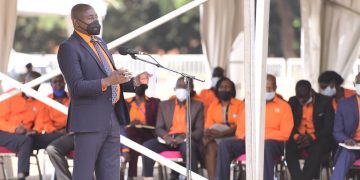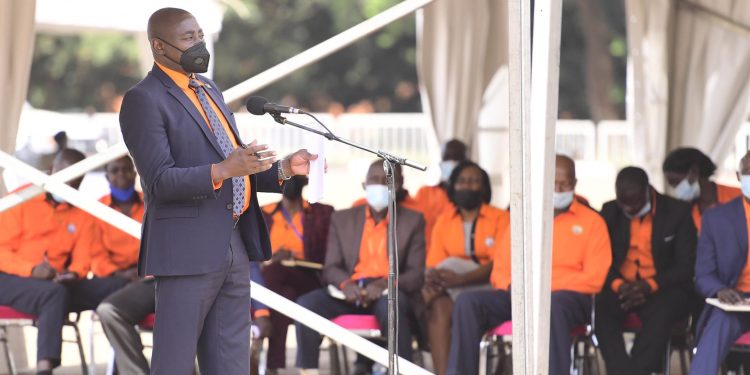Uganda National Teachers’ Union (UNATU) has dismissed allegations that its leaders were bribed with Shs700m to call off the teachers’ strike.
Fake news peddlers initiated a social media post which was shared widely claiming that the “bribe money” was delivered to UNATU leaders by Soft Power Communications’ Director, Sarah Kagingo, who they described as an aide of Operation Wealth Creation (OWC) National Coordinator, Gen Salim Saleh.
The allegations sparked a day-long discussion on several whatsapp groups with many wondering why the fake news peddlers had picked on Kagingo of all people.
In a video recording, UNATU General Secretary, Filbert Baguma, clarified that their leaders had not been bribed as alleged on social media.
“Of course, in the public domain, even before we started the negotiations, there has been thinking that UNATU leaders are always bribed to call off industrial actions. I want to put this very clear; I want any Ugandan to come out and say on such and such a day, we saw you seated with so and so and you received this amount of money.”
According to Baguma, that is only suspicion because the morality within the country has gone so down to the extent that every action is suspicious of a bribe or something related to a bribe.
“There was no bribery in this case. Let members and the public know that UNATU leaders did not receive any bribes. We only looked at the issue at hand, having discussed it with the final person (president) and the final person maintaining his stand. It would not make sense to keep pushing,” he explained.
What happened to “no money no class”?
Baguma said that on the 3rd of July 2022, they held a meeting with UNATU leaders and the resolution was that “no money no class”.
https://twitter.com/SoftPowerNews/status/1544634552139894786?s=20&t=LRevSGBhri7yptK3iMHVHg
“From that meeting, we went to meet the president on July 4. On arriving there, he clearly stated that he had not come to negotiate. And the position was “no class no talk”.”
Baguma said this was the third meeting in a row in a period of three weeks.
“We met His Excellency two times and the third time; we met the vice president who was delegated by the president. If talks have to continue, the only solution was to think of what is next. That is why we came up with the resumption of the teaching and the learning process.”
Planned petition to parliament
Having exhausted all the discussions with the executive arm of government, Baguma said they still had options to interface with the remaining two arms: judiciary and legislature.
“The Rt Hon Speaker of Parliament had earlier tweeted that teachers cannot force the government to look for money. Petitioning to someone who already has a decision would make no sense.”
He said UNATU had gone to parliament before but left disappointed.
“The leader of the legislature had already taken a decision even before we go there. That is why we did not petition parliament,” Baguma revealed.
Was the industrial action a failure?
According to Baguma, the beauty in this engagement and struggle is government and all other stakeholders have appreciated the issue at hand.
“It is in the public domain. Everyone is discussing the issue of teachers. They are saying all teachers matter. That is a very high score,” he noted.
He said the cabinet has also realized that it was done without looking at the consequences it might cause within the school setup.
“Therefore, primary teachers and arts teachers have not lost it. I want to assure you that we shall reach where we are destined to.”











